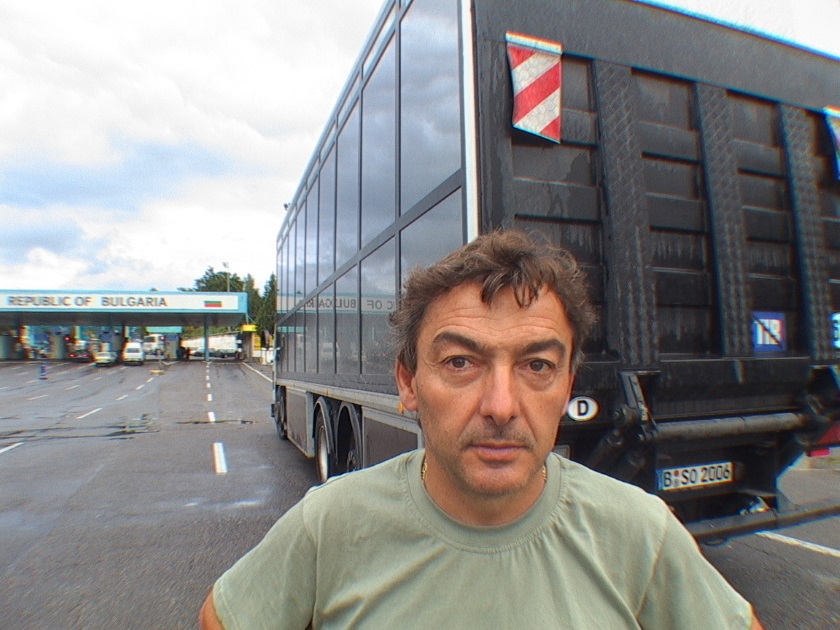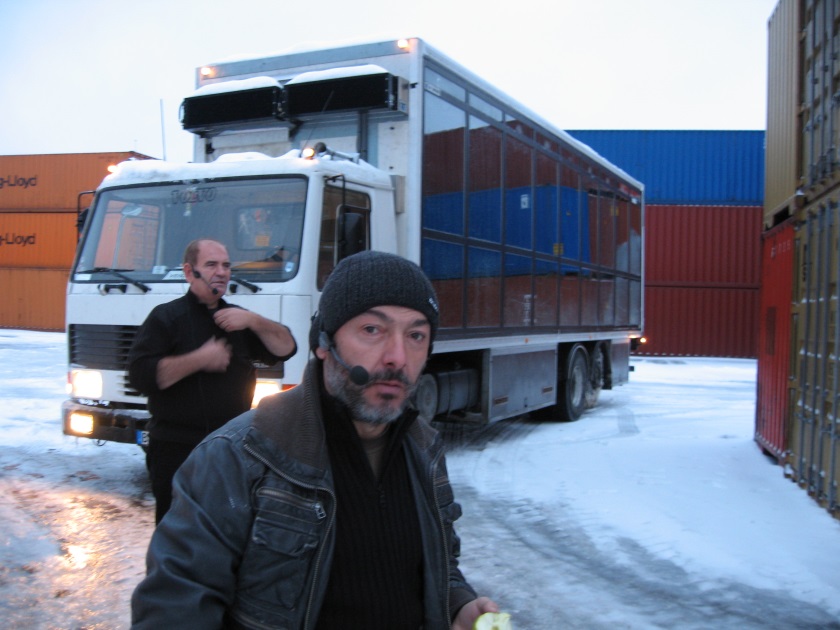An Interview with Stefan KAEGI (Rimini Protokoll)

If Rimini Protokoll was a multi-national corporation, their profile can be written as such that since its establishment in the year 2000, they have been operating globally, with measurable success in franchising professional work like 100% City, tested and created locally in at least the 23 diverse cities of Berlin, Athens, Vienna, Tokyo, Krakow, San Diego, Dresden, Copenhagen, Cork, Cologne, Karlsruhe, Zurich, Oslo, London, Braunschweig, Melbourne, Amsterdam, Riga, Philadelphia, Darwin, Brussels, Gwangju and Penang. This production of 100% has since directly engaged more than 2,300 inhabitants in covering valued personal accounts, stories and realities of the populace. Should KPI’s (key performance indicators) be truly necessary in calculating the reach of soft skills, in this case, theatre, Rimini Protokoll could highlight in a report their economic value against the production of new and multiple products, active community engagement and market development. But then again, Rimini Protokoll is a theatre company. In the last 15 years, Helgard HAUG, Stefan KAEGI, and Daniel WETZEL have been working together in bringing a new form of theatre making and experiencing performance through their company Rimini Protokoll. Unlike the conventional touring company that hops from city to city with a theatre ensemble, Rimini Protokoll is known to be the inventors of “documentary theatre” and inviting “real life experts” on stage in composing the staging for their collaborative works. Based in Berlin’s Hebbel am Ufer, this multi-awarded team of authors and directors have been unstoppable in conquering the world since meeting during their Applied Theatre Science and Performance Studies at Giessen University in Germany. Rimini Protokoll employs the constellation of works in the realm of theatre, sound and radio plays, film and installation, whilst focusing on the continuous development of tools to allow unusual perspectives of reality to emerge. ASEF culture360 caught up with Venice Biennale Silver Lion awardee, Stefan KAEGI in between short breaks in the latest staging of 100% Penang in Malaysia and workshop in Hong Kong for the staging of yet another 100% cultural confrontation. In the last 15 years, Helgard HAUG, Stefan KAEGI, and Daniel WETZEL have been working together in bringing a new form of theatre making and experiencing performance through their company Rimini Protokoll. Unlike the conventional touring company that hops from city to city with a theatre ensemble, Rimini Protokoll is known to be the inventors of “documentary theatre” and inviting “real life experts” on stage in composing the staging for their collaborative works.Based in Berlin’s Hebbel am Ufer, this multi-awarded team of authors and directors have been unstoppable in conquering the world since meeting during their Applied Theatre Science and Performance Studies at Giessen University in Germany. Rimini Protokoll employs the constellation of works in the realm of theatre, sound and radio plays, film and installation, whilst focusing on the continuous development of tools to allow unusual perspectives of reality to emerge.ASEF culture360 caught up with Venice Biennale Silver Lion awardee, Stefan KAEGI in between short breaks in the latest staging of 100% Penang in Malaysia and workshop in Hong Kong for the staging of yet another 100% cultural confrontation.
In the last 15 years, Helgard HAUG, Stefan KAEGI, and Daniel WETZEL have been working together in bringing a new form of theatre making and experiencing performance through their company Rimini Protokoll. Unlike the conventional touring company that hops from city to city with a theatre ensemble, Rimini Protokoll is known to be the inventors of “documentary theatre” and inviting “real life experts” on stage in composing the staging for their collaborative works. Based in Berlin’s Hebbel am Ufer, this multi-awarded team of authors and directors have been unstoppable in conquering the world since meeting during their Applied Theatre Science and Performance Studies at Giessen University in Germany. Rimini Protokoll employs the constellation of works in the realm of theatre, sound and radio plays, film and installation, whilst focusing on the continuous development of tools to allow unusual perspectives of reality to emerge. ASEF culture360 caught up with Venice Biennale Silver Lion awardee, Stefan KAEGI in between short breaks in the latest staging of 100% Penang in Malaysia and workshop in Hong Kong for the staging of yet another 100% cultural confrontation.

In the last 15 years, Helgard HAUG, Stefan KAEGI, and Daniel WETZEL have been working together in bringing a new form of theatre making and experiencing performance through their company Rimini Protokoll. Unlike the conventional touring company that hops from city to city with a theatre ensemble, Rimini Protokoll is known to be the inventors of “documentary theatre” and inviting “real life experts” on stage in composing the staging for their collaborative works. Based in Berlin’s Hebbel am Ufer, this multi-awarded team of authors and directors have been unstoppable in conquering the world since meeting during their Applied Theatre Science and Performance Studies at Giessen University in Germany. Rimini Protokoll employs the constellation of works in the realm of theatre, sound and radio plays, film and installation, whilst focusing on the continuous development of tools to allow unusual perspectives of reality to emerge. ASEF culture360 caught up with Venice Biennale Silver Lion awardee, Stefan KAEGI in between short breaks in the latest staging of 100% Penang in Malaysia and workshop in Hong Kong for the staging of yet another 100% cultural confrontation.
VB: Moving forward, how and what are deciding factors of the topics as well as locations you embark on? For instance, when conceptualising 100% or Cargo – which moved from Europe to Asia? SK: Our first Asian experience was in India - if I remember well. We developed Call Cutta in Kolkata trying to replace post Colonial customer-buyer-relationships into real conversations and bringing those biographies in an intimate game very close to the spectators via telephone. Later we started adapting site-specific ideas in an Asian way: Cargo Tokyo-Yokohama and Singapore, Ciudades Paralelas in Delhi, 100% Gwangju and Penang, Remote Bangalore among others. But we also started to find topics in Asia: Bodenprobe Kasachstan on oil-extraction and migration in Central Asia, Volksrepublik Volswagen about the German car manufacturers in China and in Poland. I curated an entire festival on "Asian Actions and Shares.” VB: Your team constantly works with very diverse cultures and perhaps confronted with complex situations as it touches on very personal and volatile topics. I wonder how you manage and facilitate the production or articulation of ideas as director/dramaturge/theatre maker. How do you deal with cultural sensitivities? SK: Theatre is a communication tool for us. It can be the contrary of television: it can bring people and their stories very close to each other. So while nationalistic politics always struggle to keep the global economy in a human form, theatre can create very direct bridges between the people in all of these countries that in the end are much more connected than we think as long as we stick to our fears and prejudgments.
VB: What specific considerations do you keep in mind or employ in the shift of language (spoken words) as well as the transmission of the real life stories to the stage? SK: Our texts are not literature, we co-write them together with our performers and protagonists, so they stay alive. There was more than a third of 100% Penang that we didn’t understand because it was spoken in Hokkien, Malay or Tamil. So we worked with local dramaturges who helped us not only to understand the words but also their contextualised meaning, and with whom together we developed content. I am just on my way back from Hong Kong where we have already started now the collaboration and research for 100% HK together with the local company "On and On" who have 15 years of experience in performances that are deeply rooted in the political circumstances. VB: Say for 100% Penang, what specific challenges were you faced with? Having done it in several cities, what was the most poignant characteristic or elements that stood out in the process of working in Malaysia? I mean, do you even compare one with the other? SK: It's always very exciting to ask the same questions again to which we have heard local answers in many other cities, because we can compare. Who is in favour of the death penalty has had a much higher yes-percentage in Asia than in Europe. Much more people were single in Penang and Gwangju than in Paris or Brussels. Drugs and corruption were much more a topic in Malaysia than in South Korea. But we also develop questions out of the city. The question if pre-marriage sex was okay we would never have asked somewhere else. The privileges of the Malay inhabitants over the Chinese and Indians were quite a topic in Penang. We also needed to talk about the bad shape of the public transport system.






Comments